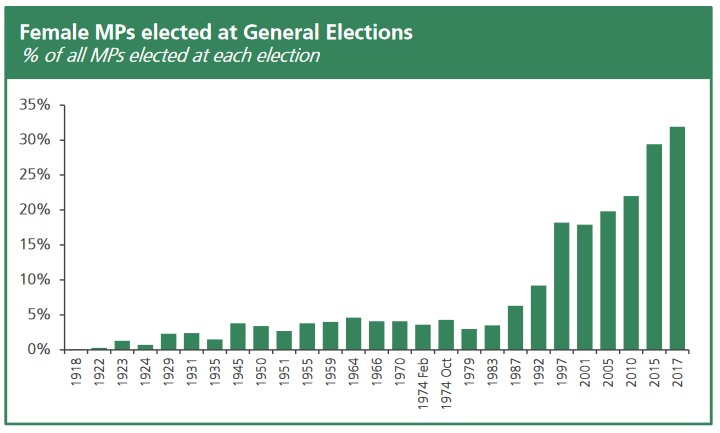Let’s talk about gender.
Living in the UK, one may feel that although we still live in a patriarchal society, women are definitely treated better here than in other countries. The wage gap is constantly closing, and opportunities available to women are increasing. But when we think of politics, we think men. Or ‘Eton boys’. You will never hear of the ‘Cambridge girls’ or anything along these lines. I mean sure, two female Prime Ministers in the history is quite an achievement, still better than many countries. Progress! Or is it? When we look at the legacy of Thatcher, or rather its lack in the feminist field, the first female PM who endorsed the patriarchal style of leadership… A woman who was in the best possible position to improve the lives of women in the society, to make room for them in politics and yet… She did not. So although some may argue that it was progressive time when Thatcher was fulfilling the role Prime Minister, it clearly was not… And what of Theresa May? Her track record is dubious and she is known for tiptoing around issues, and making an U-turn, after U-turn, after U-turn… May formed an alliance with DUP, who do not believe in female bodily autonomy and are against abortion, under no circumstances. She worked hard with the government on austerity measures which affected women most. There is absolutely no reason why feminists should be happy that a woman becomes the PM as long as she is a member of the conservative party. So far they have just proven to not care about making women’s lives better or more equal.
We need more women in politics. Women who care about the gender inequalities, about the economic inequalities, about the rights of LGBTQ individuals among many more.
So where are these women?
Globally, the UK’s 30% ratio for women in the House of Commons puts it 49th in ranked list. Rwanda is first, followed by Bolivia, Cuba and the Seychelles. That statistic is staggering. For a country with one of the leading economies and ‘possibilities’, how does this happen?

Fig.1 Women in Parliament and Government, 2018
As this figure shows, the Conservative party has the smalles percentage of female MPs.
Fig.2 Source: House of Commons Library (2017)
The above chart shows that despite the odds, the number of women in parliament is increasing. In the most recent election of June 2017 we have reached the highest percentage of women yet. It is still just around one third of all of the MPs, but it is a significant percentage, and if it will continue to rise then maybe soon we will witness equal proportions of men and women in politics, that also reflect the general population of the UK and the world.
However, women face many obstacles. Not just when it comes to becoming successful as a politician, but also managing their image in media. Women are not taken seriously when it comes to politics. Those who end up in a position of power are often ridiculed and attacked by media and the internet trolls. One just needs to look at how Diane Abott has been abused with sexist and racist remarks during the leading up to the Snap election. In fact, she was more abused than any other MP. Out of all the abusvie tweets sent out to female MPs during six weeks leading up to the Snap election, Abott received 45% of them (Elgot, 2017). Being a woman in politics is hard. But being a black woman? Even worse.
The recent Westminster scandal also shows how the male-dominated parliament is not the most welcoming place for women. Just at the end of 2017 several MPs were investigated for sexual misconduct and Sir Michael Fallon ended up resigning (Burnett, 2017).
So how can woman fight their way into this male-dominated world and become successful?
Although it is nice to think that the UK is a progressive society, women still need to fight for their place in politics. They face far more obstacles than men and it is certainly not easy for them to become successful politicians. In order for politics to represent the issues of the society in a fair way, without prioritising particular groups’ needs above other, the world of politics needs to become more accessible to women. As well as poor people. As well as young people…
References:
Burnett, R. (2017). Westminster sexual harassment: How the growing scandal unfolded. Available: http://www.independent.co.uk/news/uk/politics/mps-sex-scandal-sleaze-spreadsheet-timeline-what-happened-explained-westminster-a8032531.html. Last accessed April 11th 2018
Elgot, J. (2017). Diane Abbott more abused than any other MPs during election. Available: https://www.theguardian.com/politics/2017/sep/05/diane-abbott-more-abused-than-any-other-mps-during-election. Last accessed April 10th 2018
